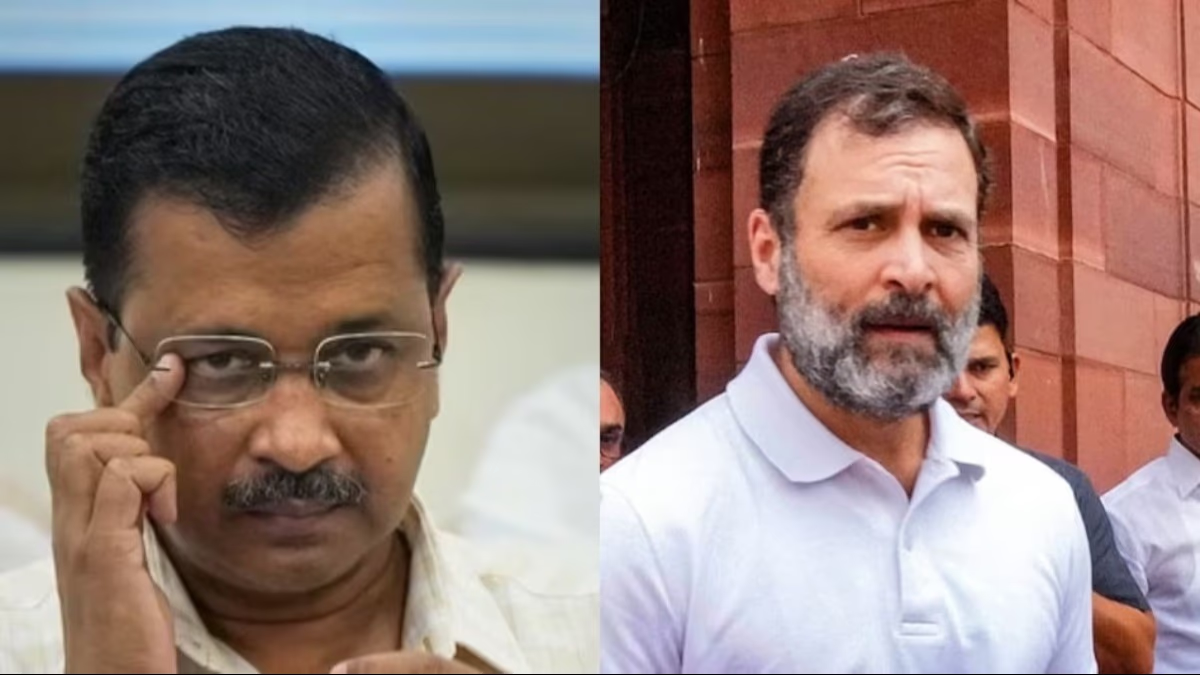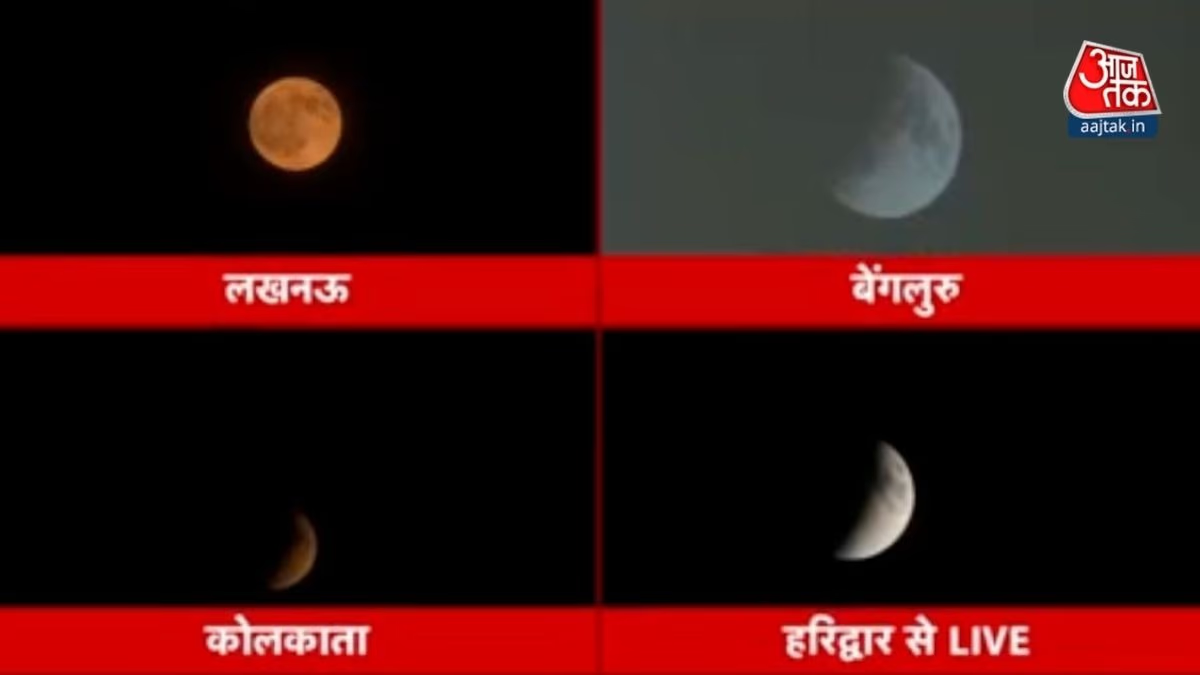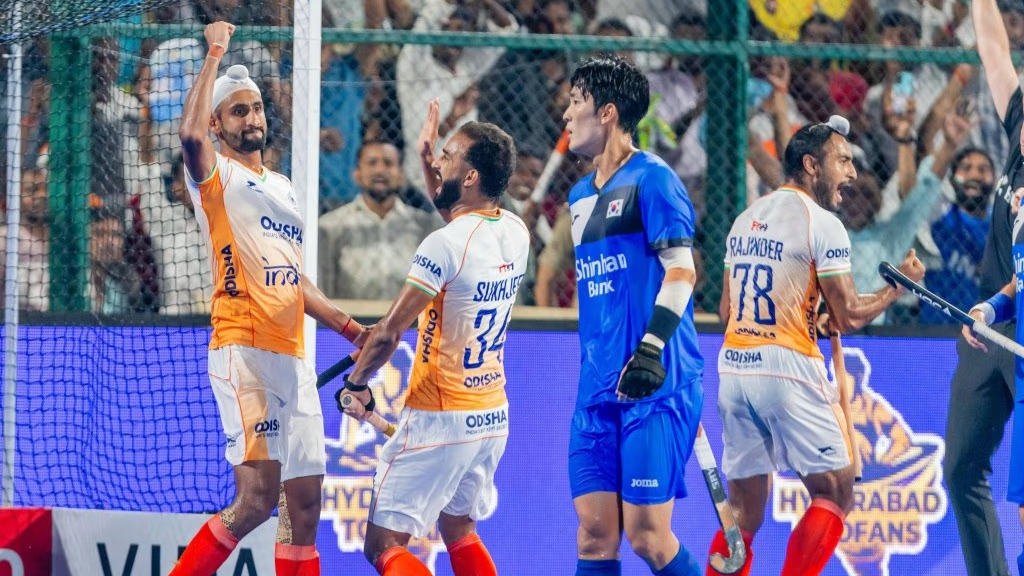Congress leader Rahul Gandhi has sought opinions from state leaders on the possibility of an alliance with the Aam Aadmi Party for the Haryana Assembly elections. During the meeting of the Congress Central Election Committee, Rahul Gandhi appeared in favor of an alliance between AAP and Congress while discussing with Haryana leaders. Although both Congress and AAP jointly contested the Lok Sabha elections in Haryana, Gujarat, Goa, Delhi, and Chandigarh, they did not achieve the expected success. Both parties' local units believe that their defeat was due to the alliance with the other party. Perhaps this is why party workers and local leaders in Delhi or Punjab-Haryana do not want any alliance. However, Rahul Gandhi's eyes are set on an alliance with AAP for several valid reasons.
1- Strengthening Opposition at the Central Level
Rahul Gandhi has a long-term vision. He believes that if the BJP becomes a bit weaker, Congress may have a chance to form the government. Rahul Gandhi knows it is challenging for Congress to secure a majority at the center. If the INDIA alliance comes to power, there could be several contenders for the Prime Minister's post. Some, like Uddhav Thackeray, might claim the position despite having fewer seats. This is why Rahul Gandhi is promoting alliances, understanding that sometimes it might harm Congress but is imperative for a united opposition strategy. Learning from BJP's strategy in Maharashtra and Bihar, Rahul grasps that alliance partners often have to make sacrifices.
Read More: What are the Pros and Cons of the Rahul Gandhi and Kejriwal Alliance in Haryana?
Therefore, he aims to consolidate the opposition against the NDA at a national level, despite any regional drawbacks. In terms of seats, the Aam Aadmi Party might not significantly benefit Congress in Haryana. Still, Rahul Gandhi sees this alliance as a strategic move to reinforce the INDIA alliance against the NDA.
2- Potential Benefits of Congress-AAP Alliance in Haryana
AAP's influence in Haryana is less compared to Delhi, but during the Lok Sabha elections, the party performed well in four assembly segments. This presence might affect the outcome, potentially shifting votes away from BJP or Congress. Analyzing the 2024 Lok Sabha results, if AAP and Congress contest separately, BJP stands to gain. Booth-level data shows BJP leading in 44 out of 90 assembly segments, Congress in 42, and AAP in 4. Together, however, the alliance might secure 46 seats, sufficient to form the government. Rahul Gandhi may be considering this data to strategize the alliances.
3- Local Units’ Valid Concerns
In Haryana, AAP is not a strong contender but demands numerous seats. Haryana Congress leaders feel AAP's strength is limited to 3-4 seats. During a recent meeting, former Chief Minister Bhupinder Singh Hooda expressed difficulty in forming an alliance due to AAP's extensive demands. Hooda mentioned that Congress could offer 3-4 seats, but AAP’s aspirations are significant.
In a press conference following the Kurukshetra loss, AAP Haryana’s Senior Vice President Anurag Dhanda accused Congress leaders Randeep Surjewala and Ashok Arora of betrayal, suggesting that forces within Congress tried to sabotage AAP’s prospects. He questioned how Surjewala, a prominent leader, fell behind by 17,000 votes in his area, implying internal sabotage. Dhanda’s points resonate as AAP and Congress share a similar voter base, relying on Muslim, Dalit, and Jat votes. They expect anti-incumbency votes, making an alliance seem disadvantageous.
Both parties fear that if AAP wins a few seats, it could jeopardize Congress’s position. In states where AAP has gained strength, Congress has weakened, as their voters shift to AAP. This concern leads both parties to hesitate in forming alliances. Senior Congress leader Kumari Selja has clearly stated against any alliance with AAP, asserting that Congress remains a strong contender on its own. Similarly, Delhi CM Arvind Kejriwal has reiterated that AAP will contest all 90 seats in Haryana independently.
During Delhi’s Lok Sabha elections, despite opposition from local units, the parties formed an alliance, but failed to win a seat. Haryana witnessed a similar scenario. Despite opposition from local units, an alliance was formed, and while AAP got the Kurukshetra seat, it did not result in a win. The Chandigarh exception saw Manish Tiwari of Congress winning due to the alliance, but overall, the impact was minimal. Analyzing booth-level data, it is evident that separate contests benefit BJP. Therefore, Rahul Gandhi’s focus on alliances is a strategic effort to counter this.
In the 2024 Lok Sabha elections, Congress performed well in Haryana, winning 5 out of 10 seats, while AAP secured 3.94% of votes, ranking third. In the previous state elections, Congress won 31 out of 90 seats, with a 28.08% vote share. Currently, BJP holds 40 seats, Congress 31, and 19 seats are with independents/others. All three major parties ( BJP, Congress, AAP) aim to contest all seats, indicating a fierce battle ahead. Booth-level data reveals BJP leading in 44, Congress in 42, and AAP in 4 segments during Lok Sabha polls, showcasing Congress’s strength in rural and minority areas.
In Ferozepur Jhirka, Congress achieved a significant victory with 98,558 votes. Narrow wins in Kosli by 2 votes and Bawani Khera by 282 votes signify potential closely contested seats. If AAP contests independently, Congress risks losing even these margins. Therefore, Rahul Gandhi’s insistence on an alliance is a strategic move to ensure a consolidated opposition front, potentially altering the electoral dynamics in Haryana.




